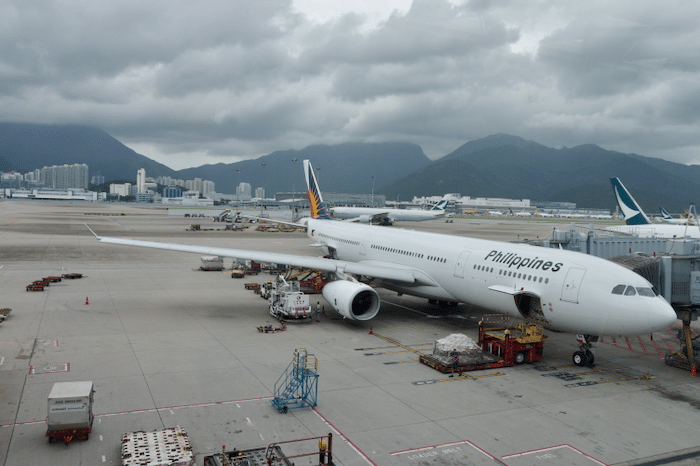
HONG KONG (SE): After days of dithering, the government of Philippine president, Rodrigo Duterte, ordered a badly implemented blanket ban on travellers from China, as well as Hong Kong and Macau, as a measure to contain the spread of the Wuhan novel coronavirus, or 2019-nCoV, Philippine media reported on February 2.
However, Filipinos, ordinarily resident in Hong Kong, who were returning to the city from the Philippines, were blindsided and left stranded at airports as the temporary ban also covers Filipinos travelling back to China, Hong Kong and Macau, the Sunday Examiner learned.
PhliStar reported that budget airline, Cebu Pacific, cancelled all its flights between the country and mainland China until March 29. However, flights to Hong Kong and Macau remained in operation, though at a reduced frequency.

Philippine Airlines announced on its Facebook page that it was reducing flights to Greater China by 50 per cent.
The report also quoted a senator, Christopher “Bong” Go, head of the Senate health committee, as clarifying that even foreign travellers who had travel history in China 14 days prior to arriving in the Philippines would be barred from entering the country. The ban would cover “any person except Filipino citizens and holders of permanent resident visa issued by the Philippine government directly coming from China and its special administrative regions.”
Go said, “I wish to emphasise that we are not singling out Chinese nationals. It covers all travellers from China to the Philippines regardless of nationality.”
In Hong Kong, RTHK reported the head of United Filipinos in Hong Kong, Eman Villaneuva, as pointing out that the ban would directly affect migrant workers.
“The quarantine procedure… is a very big concern because for many migrant workers who are going home for a short vacation—usually it’s less than two weeks and if the quarantine procedure would be 14 days—that’s even beyond the period of the vacation that they were given”, he said.
He noted that the mandatory quarantine would result in people missing their flights, or even losing their jobs if they’re unable to return to work on time.
As we celebrate the 500 years of Christianity in the Philippines. The Chaplaincy to Filipino Migrants organises an on-line talk every Tuesday at 9.00pm. You can join us at:
https://www.Facebook.com/CFM-Gifted-to-give-101039001847033
In a further statement on February 3, the group denounced the Philippine government’s “sloppy” and “un-calibrated” action and the resulting confusion. It said the inclusion of Hong Kong and Macau in the ban was “an exaggerated response as these two territories have no current travel restrictions.”
The statement demanded that “Filipinos be allowed to return here to Hong Kong for work, study, and residency purposes.”
The group also called on airlines “to be more flexible given the situation and give full refunds to those who were forced to cancel their flights.”
Meanwhile, the head of that World Health Organisation, Tedros Adhanom Ghebreyesus, said on February 3 that there was no need for measures that “unnecessarily interfere with international travel and trade.”
Reuters quoted him calling on “all countries to implement decisions that are evidence-based and consistent.”
The Catholic Bishops’ Conference of the Philippines (CBCP) issued an obligatory prayer, or oratio imperata, for people who are sick from virus and for the prevention of its spread. In addition, it issued a set of health guidelines.
Parishes were urged to pray the oratio in “all weekday and Sunday Masses, after Holy Communion, kneeling down.”
The CBCP circular also called for the observance of the following: receive the Communion in hand; change holy water regularly; hang protective cloth across the grills of confessionals; discourage the holding of hands when praying the Our Father and the shaking of hands during the exchange of the Sign of Peace.
“In praying we invite ourselves with all our brothers and sisters suffering with the disease brought by this virus, bring up to God our longing for them to be restored to full health and humbly pray that we may be spared from infection of this virus,” Father Marvin Mejia, secretary-general of the CBCP said.










